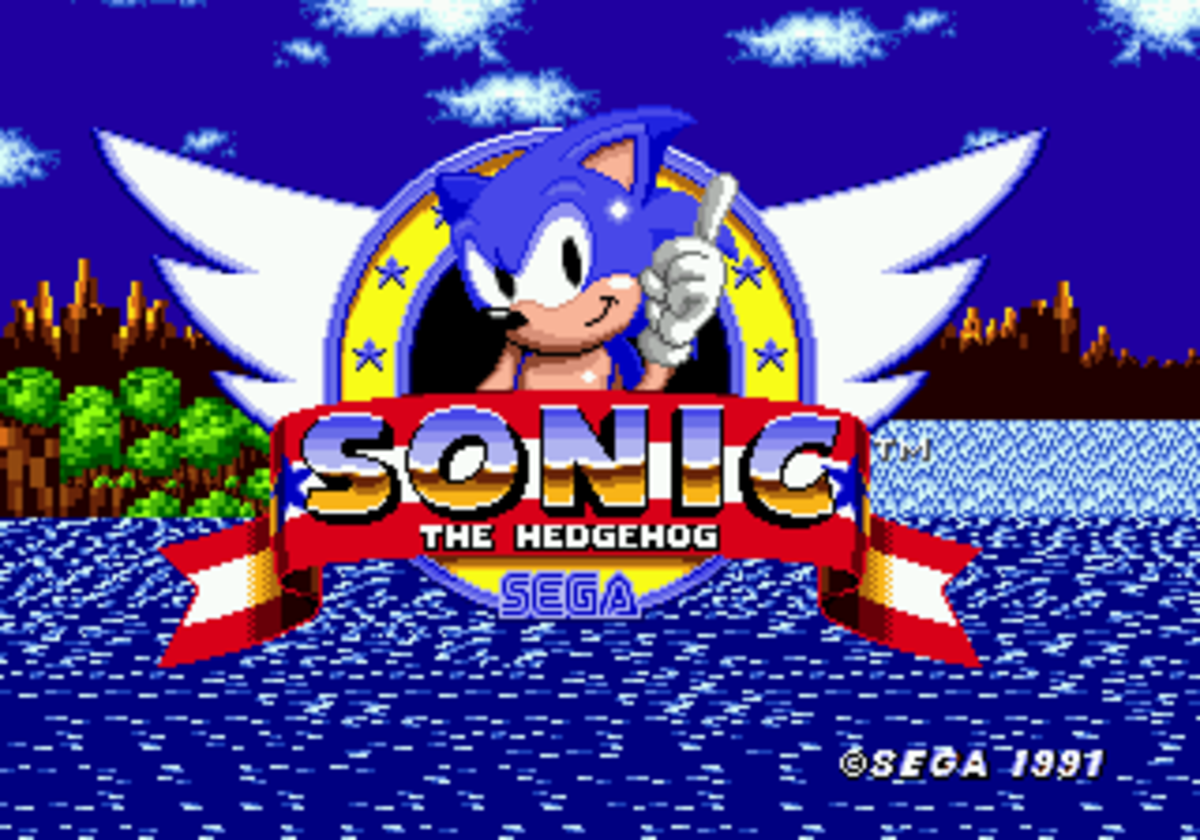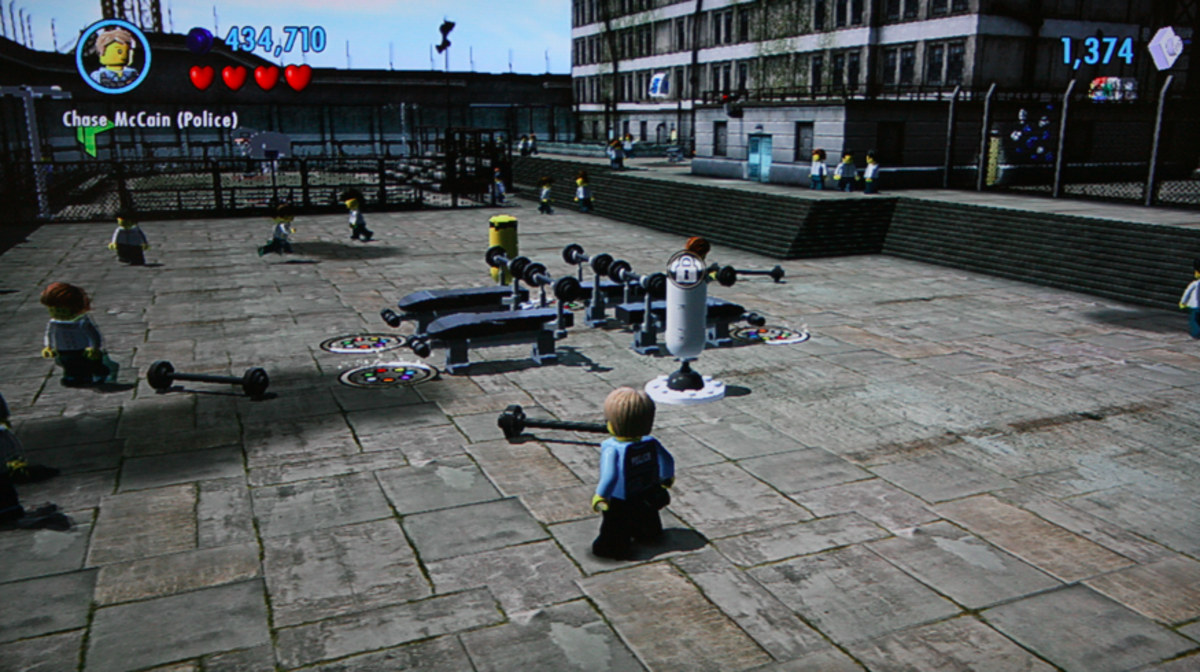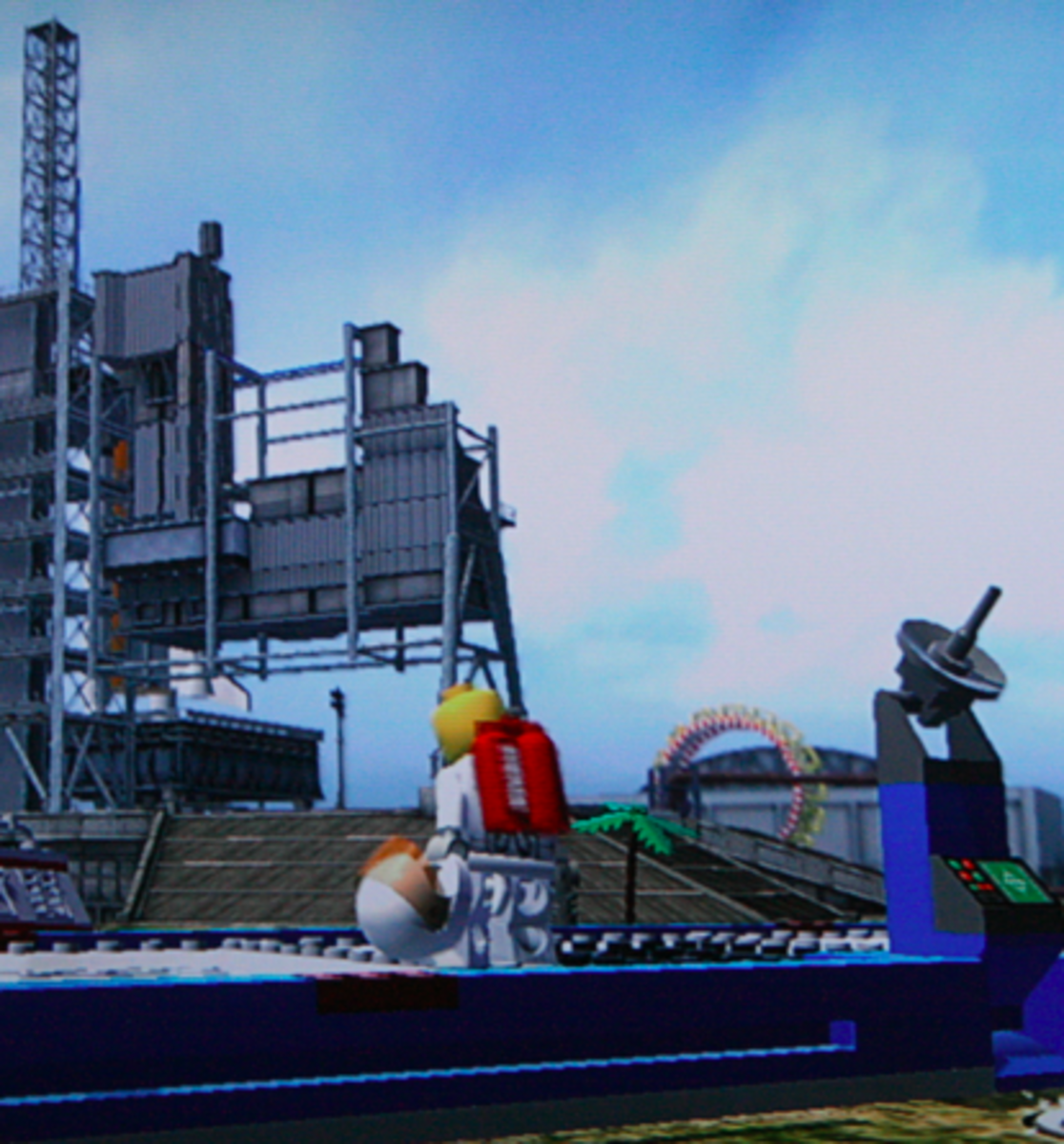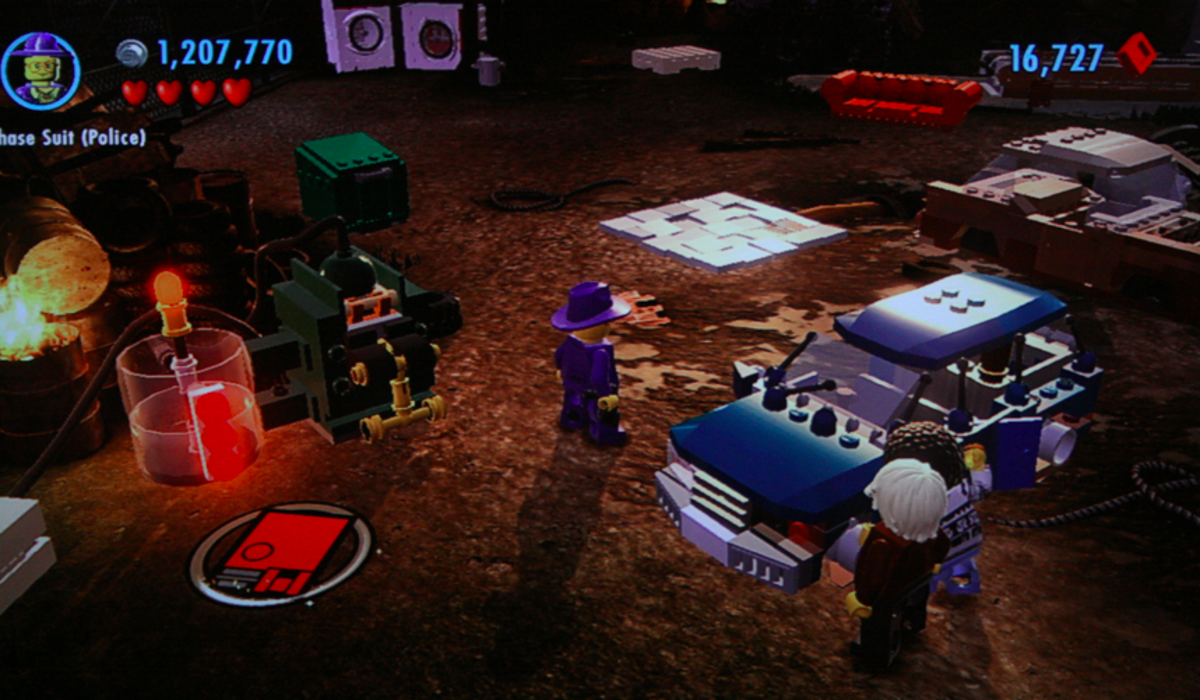7 Awesome Metroid Games You Need to Play

Screw Attack!
I was late jumping onto the Metroid bandwagon. I was a Sega Genesis kid growing up, and therefore actively shunned anything related to their arch-rival, the evil Nintendo. I was a 16-bit fanboy, and until I got older and understood diversity, I was exclusive to Team Sonic. Even though the Metroid franchise literally grew up with me (we were both born in 1986), our love did not blossom until I was out high school and she had already made her way onto six different gaming platforms. When our paths finally did cross on my Nintendo DS, I realized that it had always meant to be. I played through Metroid Prime: Hunters three times in a row, and after that, I realized that I needed more. I found a used Metroid: Fusion cartridge at a local Gamestop and played through that one at least four times. I stole my little brothers Gamecube and took it away to college with me, and was completely blown away after spending hours playing through Metroid: Prime. Long story short, my relationship with Metroid came into full force during my young adult years, and I was determined to play through all of them.
Making a list of awesome Metroid games is a little counter-productive. There aren't very many of them, considering how old the franchise is, and they are all excellent games. The fact that so few exist in relation to time span really does say something about well-executed game design. Metroid Games are deep, well thought out, and rewarding upon completion. There is no such thing as a "lesser" Metroid game because of the love and care put into the development of each one of them. That said, I am developing a series of "7 Awesome..." articles, and therefore have come up with a list of my favorite seven Metroid games.
It should go without saying that this list is my opinion and my opinion only. Gamers can be a fickle bunch sometimes, and my choices do not necessarily reflect the Metroid-fan community by any means. I am not a hardcore gamer by modern definition, and never have the time to play through as many games as I would like. Because of this, I am very picky about which games I actually give the time of day, and Metroid has yet to do me wrong.
Enough about me, let's get this list going!
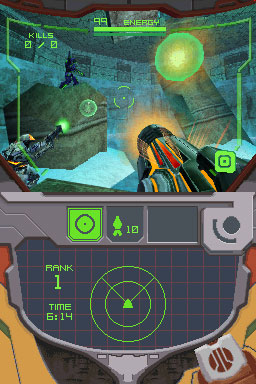
7. Metroid Prime: Hunters (DS)
The Nintendo DS is a strange beast. It was a touch-screen gaming device that existed before touch-screen games were the casual standard. In an era of quickly advancing gaming technology, it was comfortable powering games ported from the rustic Nintendo 64. It wasn't particularly portable in it's first iteration, it exhibited sub-par audio capabilities, and the requirement of using a stylus for a resistive touch screen pales in comparison to today's finger-ready capacitive mobile gaming. Even with its shortcoming, The Nintendo DS is one of the best selling gaming units of all time, and many of the games available for it are simply amazing.
Metroid Prime: Hunters is one of the strangest Metroid games ever made, and so it is fitting that it was developed for Nintendo's strangest handheld. It is a first-person shooter by any definition of the genre, and it is the very first game Metroid game to give the player full 360-degree shooting range without any crutches whatsoever. Since all the games featuring Samus (the protagonist and sole playable character in the Metroid universe) are more reliant on adventuring over action, Hunters exists as a completely unique experience.
Pegging Metroid Prime: Hunters as a strict first-person shooter would not be doing it justice, however. It is a Metroid game through and through. Exploration is still required and the game is not particularly linear, at least not in comparison to other entires within the genre. Players must collect information via a scan visor, and are given the opportunity to piece together a jigsaw narrative with clues hidden throughout the environment. Samus upgrades her armor and artillery through the course of gameplay, giving players the unique upgradeable experience constant throughout the franchise. This is also the first Metroid game that pits Samus against other intergalactic bounty hunters, giving the classic isolated setting a bit of a facelift.
Not unlike the console that hosts it, Metroid Prime: Hunters has shortcomings. The boss battles are not very creative. The level bosses consist of the same basic design, and are not as much fun to defeat as other major Metroid antagonists. The other hunters that Samus must face throughout the game employ similar fighting tactics, and are not very challenging after the player figures out how to fight them. The game is not particularly long either; and some level designs tend to blend in together after a while.
These issues aside, playing though Metroid Prime: Hunters is a blast. Even though it is a handheld game, the touch-screen controls provide a wholly immersive experience, probably more-so then the later Wii-developed Metroid Prime games. After a lengthy play-through, gamers will actually feel like they are the ones inside the game, rather than an outside force controlling a character. There is also a classic first-person multiplayer mode, which ironically, was the greatest selling point for a game set in a series of exclusive single-player entries. Metroid Prime: Hunters has aged, though, and finding an online opponent may be a little tricker these days.
As with almost all DS-exclusive titles, this one has not been ported to any other platform. Thankfully, the Nintendo 3DS is backwards compatible with all original DS games, so Metroid Prime: Hunters can be enjoyed on a modern gaming console.
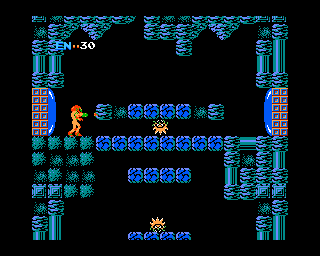
6. Metroid (NES)
There is little doubt that the original Metroid game has not aged well over the years. Thanks to extremely bland graphics, ridiculously open-ended environments, a confusing password saving system and a lack of any mapping interface, it is not nearly as accesible as other classic 8-bit titles. What it lacks in charm, however, is fully redeemed by its revolutionary pedigree and the overall mystery surrounding the whole ordeal. There really had never been a game like it before, and no game to this day requires as much player dedication as the first Metroid.
To fully appreciate the original Metroid game, one must think back to a time before gaming designs and narratives were spoon-fed to the player. This game literally throws the player into its environment with few details and no designated direction to go. The movements and shooting range provided to Samus are limited upon arrival, and the player must explore everywhere to find ways to upgrade her capabilities. No clues or hints are given to the player in relation to where to go next, literally making the entire game an unparalleled open world experience.
The open-world, non-linear philosophy presented with Metroid has been consistently carried over to later games in the series, but none of them present this notion with as much ambiguity as the original one. As mentioned, there is no mapping system, so unless there player has a photographic memory, an actual physical map must be drawn on a piece of paper in lieu of getting lost within the environment. The save system is password based, so the aforementioned pad of paper will serve double duty. This destruction of fourth-wall ideologies is the reason Metroid is so captivating, and even though the game is practically a fossil, it sets it apart from its mid-1980s counterparts.
Metroid isn't for everyone. It is as incredibly frustrating to play through today as it was in 1986. But the technical limitations it presents are a small price to pay in regard to what it started. The original Metroid is available on several Nintendo platforms, including the Wii and 3DS, and has been ported as a cartridge for Gameboy Advance.
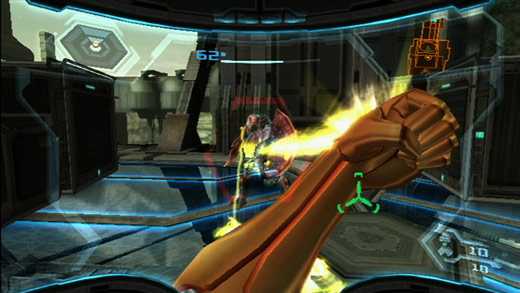
5. Metroid Prime 3: Corruption (Wii)
Metroid Prime 3: Corruption is the thrilling conclusion to Nintendo's amazing Metroid Prime trilogy. As far as Wii first-person action-adventure titles go, it is untouchable. As a piece of software, it is proof that the Wii can go head-to-head with more powerful consoles in the hardcore gaming department. Any gamer who disagrees with this has likely never given Corruption a try.
The original Metroid Prime stylings remain, but are enhanced with a superb Wii-mote centric control scheme. Very much like a mouse-and-keyboard setup, the Wii-mote is used to aim Samus in a 360-degree environment while the joystick-enhanced nunchuk is used for directional movement. This level of control is a huge improvement over the relatively clunky scheme presented in the two preceding Prime titles, and the game is unique because of it.
The control scheme is not the only aspect of the game that sets it apart from the other Prime titles, though it does contribute towards the differences. Exploration is still required, but a greater emphasis is placed on action this time around. The inclusion of planet hopping instead of remaining on a singular terrestrial environment gives Corruption a larger feel, at least in sensory perception. There are a few non-playable-characters scattered throughout, which take away a bit of the trademark isolation, but does not inhibit any of the gameplay. The boss battles are predictably epic, and always fair.
Truth be told, the Wii has become a disappointing console as of late. Quality games are buried beneath mountains of shovel-ware, and are becoming rare in its post-2012 lifecycle. This notion makes Corruption a diamond in the rough, but it does not give the gem a bleaker shine. It really just makes it stand out even more.
Metroid Prime 3: Corruption can be obtained fairly cheap as a used game for the Wii. It was also released within the limited edition Metroid Prime anthology collection for the Wii, alongside its two predecessors. As of this writing, it has been announced that the successor to the Wii will be backwards compatible with original Wii titles, so Nintendo gamers have at least one more console generation to give Corruption a try before it fades into classic-game status.
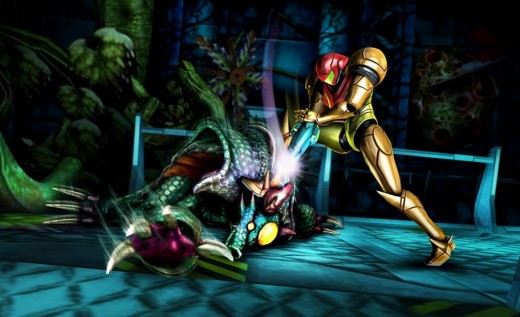
4. Metroid: Other M (Wii)
Metroid: Other M is likely the most polarizing Metroid game in existence. Some players absolutely love it, some players completely hate it. There are so many things that are just different about this game, both as an entry within the Metroid series and as a game in general.
As a Metroid title, it is the first home console entry to introduce a cohesive narrative. Samus actually talks in this one--and, boy, does she talk. There are dozens of non-playable-characters. Full-video cut scenes are sprinkled throughout the game, and they are long. Samus is fully developed as a character, which is unheard of in the Metroid series. Players learn her backstory, they hear her thoughts, and they are exposed to her human flaws. The once mysterious and isolated heroin becomes a chatty character with feelings and emotions.
There are differences aside from the narrative that set Other M apart its fellow game entries. Samus has all of her advanced weaponry from the get go, thus searching for them is not required. Instead, Samus is instructed by a higher officer when to use particular power-ups. The advancement of abilities is not unique to this Metroid game, and in reality, it's the same basic mechanism--as the game advances, so do the techniques of Samus--but there is just something so different about it being reliant on orders instead of traditional exploration. Other than this, there is the obvious: this is the first Metroid game set in a third-person perspective.
As a video game in general, Metroid: Other M is unlike anything ever made. Co-development by Team Ninja tempts one to compare it to the Ninja Gaiden series, but really, it's nothing at all like a Ninja Gaiden game. The controls are solely played on the Wii-mote without a the Nunchuk attachment. Players must hold the Wii-mote horizontally, and use the directional pad for movement. Since Other M is mostly in a third-person perspective, this lack of analog control is a curious addition, but there is a reason behind it. Even though the environment in presented in a three-dimensional landscape, there are several times where Samus must move around in classic two-dimensional platforming fashion, akin to previous side-scrolling Metroid games. The usage of a D-pad instead of a free-range analog stick provides tighter control for this type of movement. There are also times when the player must point the Wii-mote towards the screen to transition into a first-person shooting perspective. To summarize all of this: Metroid: Other M is a third-person three-dimensional adventure game, it has two-dimensional side-scrolling elements, and throws in a first-person shooter perspective. That is a lot for one game.
Gamers that hate Other M usually cite the bizarre control scheme and lengthy narrative as the primary culprits of disdain. Gamers that love Other M realize that, even though it is undeniably different from previous entries, it is still a Metroid game through and through. It requires exploration, the playable landscape is huge, there are secrets that need to be uncovered in order for completion, and the boss fights are completely and totally amazing.
Though developed years later, Metroid: Other M is a prequel to Metroid: Fusion, the next game on this list.
Metroid: Other M is a Wii exclusive, and like Corruption, can be potentially enjoyed on the successor to the Wii.
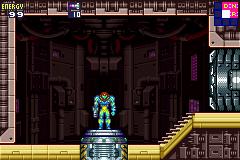
3. Metroid: Fusion (GBA)
The numerical Metroid games are known for their Nintendo console jumping installments. The first one was released for the NES, the second one for the Game boy and the third one for the Super Nintendo. It therefore seems fitting that Nintendo chose to release the fourth Metroid game on their final handheld console to bear the Game boy branding. Developed for the Game boy advance, Metroid: Fusion is the fourth chronological entry within the gaming arch. It is a side-scrolling adventure much akin to it's predecessors, but like each and every one of them, it brings new gaming elements to the series. While Metroid: Other M was the first home-console Metroid game to feature a narrative, Fusion is the first one to introduce the concept within the series.
Throughout the game Samus discusses her mission as she carries it out, giving players a sense of understanding with each different plot point. The narrative serves a purpose greater than simply existing to exist; it acts as a directional tool. Since Samus has been given a voice (via text), she is able to interact with a mainframe computer that guides her around the environment. Even though the game is still open-ended in spirit, the inclusion of specific missions gives Fusion a linear umbrella to work under. It almost seems sacrilegious to introduce structure within a Metroid game, but it works incredibly well with this one since the mission is more personal to Samus this time around. She has been genetically been fused with the mysterious antagonist in question, and thus, as a character, the stakes are much higher for her. Without the narration and instructional direction, it is unlikely that the player would truly be able to experience an adventure as well thought out as Fusion.
Silky smooth graphics and an excellent soundtrack work with the narration to create an overbearing sense of dread throughout Metroid: Fusion, and it is the first game in the series that allows a personal connection with its trigger friendly heroin. It is also one of the more addicting entries within the franchise. Previous Metroid titles provided secrets scattered throughout, and replayability existed through speed-runs and perfect item collection. Fusion is no different, but gamers may choose to play through it again and again simply based on how much fun it is. It is also relatively short in length, but that is not a cause for concern. It is simply as long as it needs to be, and its brisk pacing absolutely encourages multiple plays.
Metroid: Fusion is a Game boy Advance cartridge, and can therefore be played on a Nintendo DS as well. Nintendo chose not to include GBA compatibility with the 3DS, but it will hopefully become available as a Wiiware download.
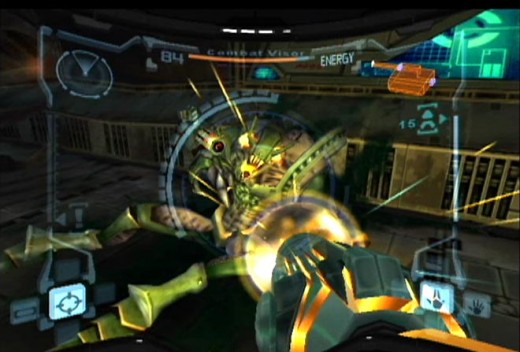
2. Metroid Prime
Controversy had risen in the Gaming world when Nintendo announced that the long awaited next-generation Metroid game would be in a first-person perspective. Opinions were thrown around like dirty laundry, and the buzz surrounding the impending release of Metroid Prime was understandably curious in nature. Many other iconic franchises were finding themselves transitioning into three-dimensional environments (Mario and Sonic titles stand out), but the changes found with them were conservative in ambition. The shift from two-dimensional platforming to a three-dimension third person perspective seemed like the obvious way to go for other gaming reboots, and fans were baffled when it was announced that the Metroid line would not be following this predictable route. Many long-time fans were seriously anxious to see what Nintendo had done to one of their most beloved gaming titles. Doubt was hopelessly amiss.
The doubters were severely proven wrong. Metroid Prime was released on the Gamecube to universal acclaim, and rightfully so. Prime is one of the greatest video games ever made for the sixth generation of gaming consoles, if not one of the greatest ever made, period. It is a beautiful, lengthy adventure, with much to admire and almost nothing to criticize. The first-person perspective took absolutely nothing away from the Metroid-ness of the game. All of the key elements remain intact. The playable world is open-ended and non-linear. Samus retains almost all of the past skills and abilities from previous games, and there is no doubt that the gamer is playing her, not just a generic first-person avatar. There are secrets scattered everywhere, and thanks to its new found visual perspective, finding them is even more rewarding this time around. The boss battles are grand in scale, the enemies present throughout can be as tough as nails, and precision platforming is absolutely and completely required.
There is no doubt that the core game is excellent, and even though graphics do not really deter from generalized gaming enjoyment, the visuals in Metroid Prime must be commended. They are beyond extraordinary. Even though the game has aged past almost two gaming generations, the graphics remain outstanding thanks to the addition of smart artistic choices. Video games do not have to look realistic to be believable, and this is the case with the visuals in Prime. The developers have created a world which looks nothing like anything else presented on a moving screen, and retain the balance between realistic occurrences and surreal environments consistently throughout the adventure. Even though the many creatures and plant-forms in Prime would never work in a realistic setting, the landscape throughout Prime provides comfortable housing for them. It all just works, and subtle touches like rain dripping from the display to fog encompassing the screen after jumping out of water do nothing but enhance the immersive presentation. It wouldn't matter if Metroid Prime had been released ten years from now, it would still look amazing. Developers should seriously take note.
The game is wholly engrossing, but what is most remarkable about Metroid Prime is how welcome it feels as a Metroid title. The differences between this one and previous titles are glaring, thanks in no small part to the first-person perspective, but at its very core lies everything that makes a Metroid game a Metroid game. It spawned two sequels, both excellent, but the first is arguably the best. There is a perfect balance between contemplated awe and calculated frustration, and can one really ask for more in a Metroid title?
Metroid Prime was released for the Nintendo Gamecube and is playable on earlier Nintendo Wii's (backwards compatibility was curiously removed from post 2011-Wii's). It was also released for the Wii within the Metroid Prime Trilogy anthology collection. This version has specific Wii-centric controls, and made the game even better because of them. It was, unfortunately, a limited release, and can now only be found for ridiculously high prices. The Gamecube original can be obtained used for fairly cheap.
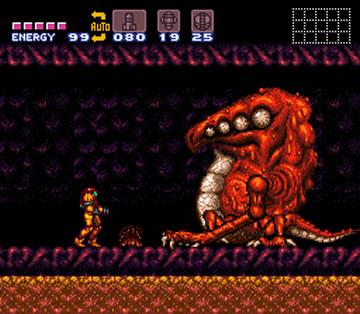
1. Super Metroid
It begins with a voice over detailing the situation. A depiction of a spacecraft landing on a space station follows this. The game itself begins in this space station, and Samus has all her weapons and armory intact. The player guides her down into the station, allowing her to jump from platform to platform, sending her along the designated path, only to end up isolated in a room with a preserved Metroid infant and Ridley, the first boss in the game. The fight is intense, and no matter what Samus does, she is powerless against the grand force of Ridley's vicious tail attack. Her shields are down, and her health is low...the battle is fought courageously but it looks like Samus has met her match with this vengeful foe. When it looks like the end of out strong heroin is drawing near, Ridley unexpectedly flees away, taking the Metroid infant with her. The station begins to rumble, then shake with great force. A self destruct sequence is activated, and Samus must quickly trace her steps back towards the exit before she goes down with the space station. The timer is going...60 seconds....59 seconds...58 seconds...the screen rotates left to right...50 seconds...there are gas leaks pushing Samus away from platforms in between her location and the exit...41 seconds to go...will she make it?
She makes it, she takes off in her ship, and the space station explodes.
That, ladies and gentlemen, is only the beginning of Super Metroid. If that sounded awesome at all, just wait till you play the rest of the game.
It is fairly cliché to rank Super Metroid as the definitive title within the series. A simple web search for lists similar to this one will likely rank Samus's sole 16-bit outing as her best one. Such an assumption may deem this article extraneous, but perhaps it just goes to show how phenomenal a game Super Metroid really is. Even though it is the third entry within the series, Super Metroid truly laid the groundwork for what is expected of all future Metroid titles. There had never really been another game like it before, and it remains as playable in the 21st Century as is was in the 1990s. Even if it inhibits the originality of the article, there is no way Super Metroid could not be ranked in the highest position.
It all really boils down to this: the NES Metroid introduced the open-ended environment, Gameboy's Metroid 2 introduced Samus as a heroin to be reckoned with, and Super Metroid gave the franchise a heavy dose of awesome. There is so much to explore in this game, so many secrets to be uncovered, so many environments that need to be uncovered...it is mind boggling to even consider that Super Metroid is drawing close to its 20th birthday. 16-bit games of that era that were half as ambitious were deemed revolutionary, and Super Metroid exists in a class of its own.
There is much praise given in the preceding paragraphs, and for good reason. Super Metroid is a stellar game, and is probably one of the best games to come out of the 16-bit era. There are many reasons for this, and listing such reasons would result in an entire article in itself. It is recommended that gamers who haven't given Super Metroid a try simply do that, and see for themselves. You will thank me later.
Ambiguity aside, Super Metroid ranks highest on this list because it is the game that all other Metroid games are judged against. The NES original created the open-ended environment, and Super Metroid defined everything that entailed towards it.
Super Metroid is available as a download on the Virtual Console for the Nintendo Wii. The emulation is perfect, and is best played using the Wii's classic controller.
Honorable Mentions
Most Metroid games in existence have already been listed, but the ones that did not make this list deserve to be mentioned. There really is no bad Metroid game, and these ones only barely missed the cut for this list. If anyone reading this has a problem with the games listed above, feel free to take one of the "honorable mentions" and place them in their position.
- Metroid Prime 2: Echoes (Gamecube, Wii). This game takes everything that was great about Metroid Prime and makes it even more challenging. Seriously, this is a tough game. The overall challenge is the primary reason it did not make it in this list with the others. Even though it is a phenomenal entry within the series, there are moments when the game seems completely unfair. Hardcore gamers take note, beating this game without a walkthrough will result in serious bragging rights.
- Metroid: Zero Mission (Game boy Advance). This game is a re-creation of the NES original, and is a great way to experience Samus's first adventure without resorting to the ultimate frustration of 8-bit ideologies. It did not make the list because it isn't as polished as Metroid Fusion, and may be a bit too easy for hardcore Metroid enthusiasts. That said, it's a great game, and a giving it a try will likely lead towards a positive experience.
- Metroid 2: Return of Samus (Game boy). Anyone alive in the mid-1980s will probably remember the cool TV commercials advertising this game. It is phenomenal for a Game boy game, there is no denying that, and it is the first game to really push Samus and a heroin to be reckoned with. A really fun game, but a step backwards in comparison towards its namesake original thanks to technological limitations provided with the Game boy.


